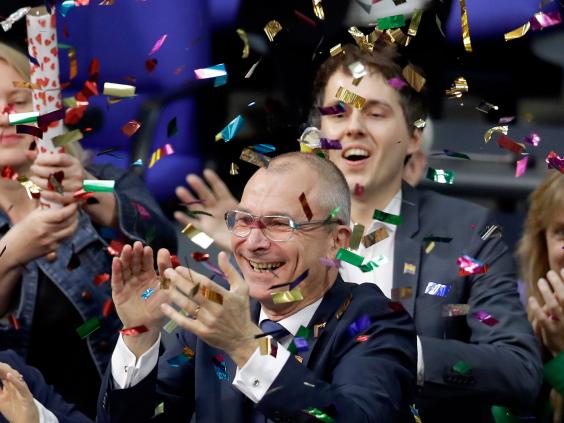Angela Merkel has voted against same-sex marriage in Germany because she believes that “marriage is between a man and woman”.
Despite her opposition, the Bundestag voted to legalise equal marriage by 393 votes to 226, and the Chancellor said she hoped the move would improve social cohension.
“For me, marriage in German law is marriage between a man and a woman and that is why I did not vote in favour of this bill today,” she told reporters moments after the historic vote.
“I hope that the vote today not only promotes respect between different opinions but also brings more social cohesion and peace.”
The Chancellor said she supported the bill’s introduction of full adoption rights for same-sex couples – a move she had previously opposed – and was fighting anti-LGBT discrimination.
“I hope that the vote today not only promotes respect between different opinions but also brings more social cohesion and peace.”
The Chancellor said she supported the bill’s introduction of full adoption rights for same-sex couples – a move she had previously opposed – and was fighting anti-LGBT discrimination.
 The Green Party's Volker Beck and members celebrate with confetti popper after the Bundestag voted to legalise same-sex marriage in Berlin on 30 June (AP)
The Green Party's Volker Beck and members celebrate with confetti popper after the Bundestag voted to legalise same-sex marriage in Berlin on 30 June (AP)
Hundreds of members of the Bundestag rose to their feet in a spontaneous standing ovation when the result was announced, as the Green party launched rainbow confetti and celebrated with a cake.
Members of the public in the viewing gallery embraced and cheered, while celebrations broke out in Berlin's streets.
Johannes Kahrs, an SPD politician known for his LGBT campaigning, had launched a blistering attack on Ms Merkel over “embarrassing” delays to the legislation.
He finished his impassioned speech during a debate before the vote with: “Frau Merkel, thanks for nothing.”
The issue of same-sex marriage has divided German politics throughout Ms Merkel’s 12-year leadership.
Even as she moved her party to the centre, closing nuclear power stations, ending military conscription and opening Germany’s border to refugees, the Chancellor has also supported an impending burqa ban and Europe-wide austerity.
Ms Merkel, herself married twice, has always been unequivocal with her personal opposition to marriage equality, citing German law, her values as an evangelical Christian and those of her party, which describes its foundations as the “Christian understanding between people and their accountability before God”.
Standing for a “free and constitutional democracy, a social and ecological market economy, Germany's inclusion in the Western values and defence community and a unified Europe” the CDU’s position – shaped by the country’s unique history – straddles the left-right divide seen elsewhere in Europe.
After years of wrangling, the Chancellor eventually triggered the historic vote to legalise same-sex marriage almost by accident.
Appearing in a wide-ranging live television interview on Monday, one of the last questions from the audience came from a gay man who asked when he would finally be allowed to refer to his civil partner as “my husband”.
Ms Merkel acknowledged that all parties apart from the CDU/CSU in the Bundestag were in favour of same-sex marriage, along with many German voters, and said she hoped the debate would become “a decision of conscience”.
The SPD pounced on the statement as a signal CDU politicians would not be whipped in a prospective vote, which they were suddenly free to call after apparently being freed from their obligations as a coalition partner.
“We will push through marriage equality in Germany. This week,” Martin Schulz, the SPD head and former European Parliament president, announced on Tuesday.
No comments:
Post a Comment